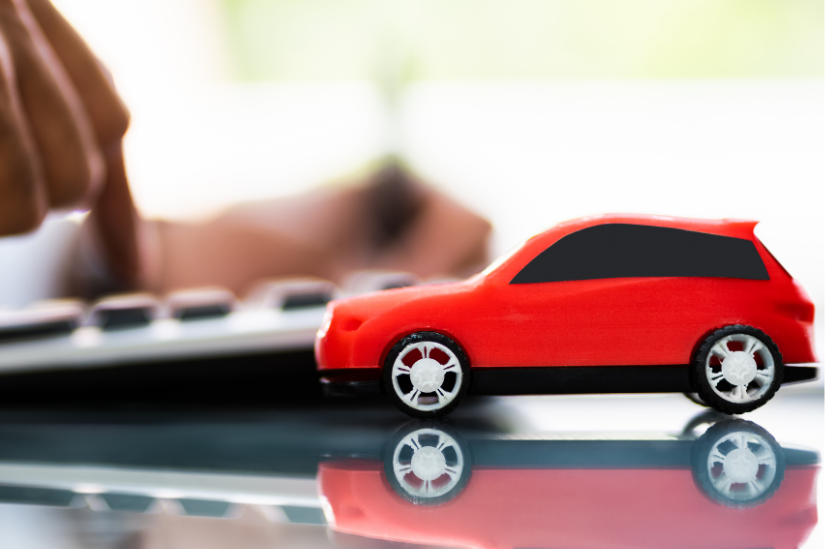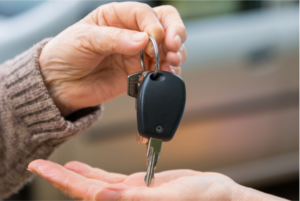
Can’t Afford Car Payments, What Happens Next?
Car payments might be a large part of your budget, but having a car can be necessary for you to get to work or run errands.
Owning a car can be expensive. You have to worry about car loan payments, gas, car insurance, tires and potential repairs.
Between your car loan payments and other expenses, keeping a car can be difficult on a budget, and you might be struggling to make your car loan payments.
If you have an automobile loan that you cannot afford, there are four main options to consider if you cannot afford your car loan payments:
- Transfer the loan
- Sell your car – privately or through a trade-in
- Give back the car – or voluntary surrender
- Refinance or negotiate a new payment plan
While tackling car loan payments might be your primary goal, it is also essential to consider other debts that might be causing you financial stress. You can look at some solutions to manage your debt, such as debt consolidation or a consumer proposal. Debt experts from EmpireOne Credit can help you explore debt solutions to tackle your debt.
What can you do if you can’t afford your car payments?
Refinance the car
One option to reduce your car payments is to refinance your loan or negotiate your car loan with your lender. Sometimes, the lender may be willing to extend the terms of your loan or lower your interest rate.
Lenders want to make sure they get paid on time. If you cannot afford your car payments, lenders might be open to changing the terms of your loan because they know you are less likely to default on your car loan if the payments are more affordable.
Speaking to your lender to get new payment terms or a lower interest rate can make your monthly payments more affordable. You would still owe the same amount, but the lower payments can be helpful if you are living paycheque to paycheque and are short on cash.
Sell your car

Another popular option is to sell your car. Selling your car can be helpful if you purchased a used car that is still worth more than the amount left on your car loan.
If you sell your car, you can use the money to pay off your car loan and no longer have to worry about car payments.
There are two main options to sell your car, either privately or trade it in.
Private Sale
With a private sale, you find a buyer willing to buy the car, and you would use the money to pay off your car loan.
It might be more challenging to sell a car with a loan privately because the new buyer will not want to be on the hook for your car payments. However, if you find a way to prove that you will pay off the car loan, maybe by walking to the bank so they can witness it, they might be open to the transaction.
Trade-in
You can also trade-in your car for another car that might be more affordable. If you choose this route, you would sell your car and use the money to pay down your loan and use any amount left over for a down payment for a new car. The current condition of your vehicle and how old it is will affect what you receive in a trade-in. Trading in your car can be a great option if you are open to a more economical car than you are currently driving.
Transfer the car loan
If the cost of your car payments is too high for you, you can try to transfer the car loan. If your family or friends can help you with your car loan payments, they can take over the car loan and title to the car.
Some lenders will allow this. The lender will still want to do their due diligence on the new borrower to ensure that the new borrower will not default on the loan.
Give back the car
If you have no other option, you might want to consider giving back your car, also known as a voluntary surrender or repossession. If you do not make your car payments, lenders will repossess the vehicle. Voluntary surrender is the same, except that you offer to give back the car to the lender.
Once this happens, the lender will try to sell the car and send you a bill for any shortfall between the value they got for your vehicle and the amount left on your loan. While you no longer have to worry about car payments, there are some downsides to this option. You have no car and are still responsible for the remaining loan.
The difference between your loan amount and what the lender was able to sell it for can be large, especially for new cars, which lose value as soon as you drive them off the lot.
If you give back your car, it is still a repossession, affecting your credit score. Thus, it should only be a last resort for most people.
Consider Debt Solutions

Car payments may only be one part of the overall debt situation for many clients. You might have credit card debt, a line of credit or student loans and your car payments.
You might have little money left for other expenses between your car loan payments and other debt. If your car payments and other loans are causing you financial stress, credit counsellors can offer you professional advice on managing your debt. They can help you take a look at all your debt together to recommend the best ways to deal with it. Options like debt consolidation or a consumer proposal can help make your debt more manageable.
Car Loans and Debt
A car may be a necessity for you to get to work or move around, but it should not be a financial burden. Your first course of action can be to speak to your car lender to see if they have options available to lower your monthly car payment to make them more affordable.
But car loans might only be one part of your overall debt situation. If your car loan payments are causing you financial stress, it can be helpful to evaluate your options and your overall debt situation so that you do not default on your loan.
If you are struggling with the debt you owe and need help, expert credit counsellors at EmpireOne Credit are here to help you to find the best way to get out of debt. Contact us for a free consultation.





